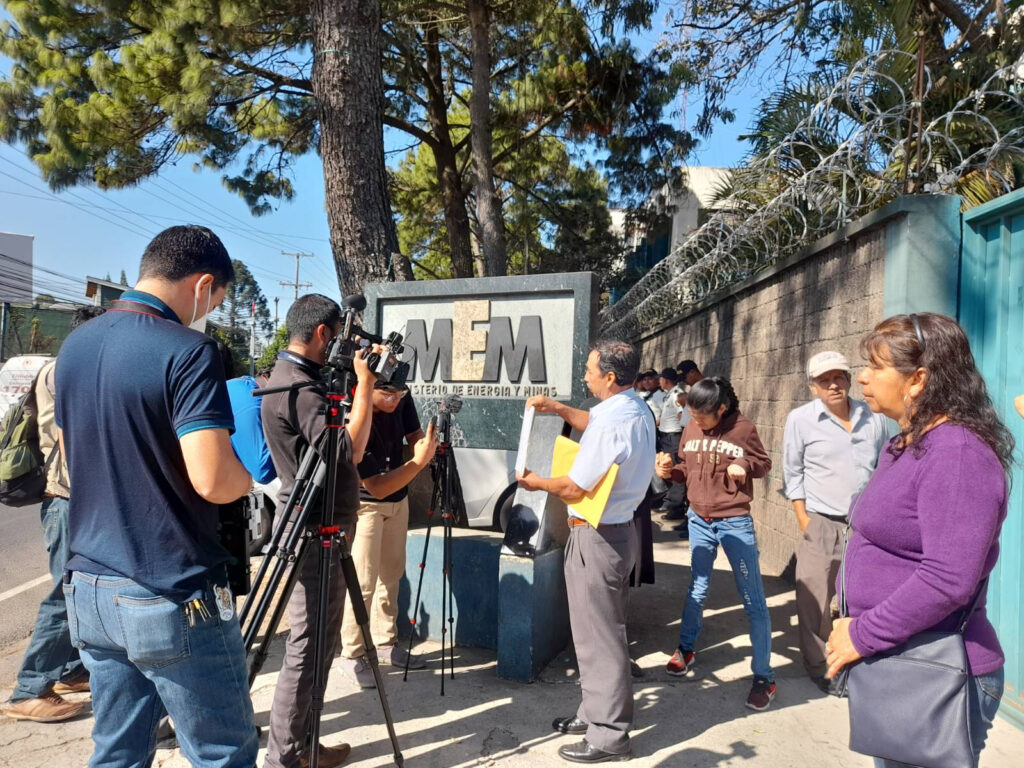The Peaceful Resistance La Puya in Guatemala celebrates 11 years this week in their struggle to defend their land and water from an open-pit gold mine owned by Nevada-based Kappes, Cassiday & Associates (KCA). La Puya’s around-the-clock resistance camp outside the mine was attacked by police and private security, and leaders faced criminalization and intimidation. Thanks to their persistence, Guatemalan courts suspended the mine in 2016 pending a consultation with Indigenous people.
But the fight is far from over. Following the mine’s suspension, KCA filed a $400 million lawsuit against Guatemala, alleging the government didn’t do enough to protect the company’s investment. On top of that, the government has refused to accredit impacted Indigenous communities’ representatives to participate in the consultation and is instead pushing ahead with a flawed process that would repeat the mistakes of the past.

On Monday, La Puya and Indigenous communities impacted by KCA’s project delivered a petition signed by over 80 organizations and 2,500 individuals to Guatemala’s Ministry of Energy and Mines (MEM) urging the government to ensure full, free and safe participation in the court-ordered consultation. The petition also warned MEM not to be coerced by the multimillion dollar arbitration suit, and to respect communities’ right to say no without fear of retaliation. Read the communities’ statement here.
This is the second time affected communities have protested at MEM’s office over the past few months. In December, they submitted a letter detailing the names of representatives from six Xinka and Maya Kaqchikel Indigenous communities impacted by the project who were selected to participate in the consultation. They called on the government to respect their “institutions, autonomy, customs, traditions, and own forms of social organization” and affirmed the consultation process as “a living, ancestral process of our peoples and communities, a community right, and a state obligation.” See their statement here.
This is not the first time that Guatemalan communities have had to fight to participate in their own consultation process. The Xinka People fought for two years to have 59 community delegates accredited to the ongoing consultation over Pan American Silver’s Escobal silver mine that began in late 2018.
In the case of La Puya, the Guatemalan government has conceded that communities were not adequately consulted prior to the start of KCA’s mining operations. This admission came as part of the government’s official defense in the arbitration suit, in which it drew extensively from La Puya’s arguments to defend itself. Guatemala argued that in addition to failing to consult with communities, the company violated environmental norms, lacked a required construction permit, and carried out a deficient environmental impact study that it concedes should never have been approved.
But, the government’s interest in defending communities ended with the start of the court-ordered consultation. MEM’s refusal to respect communities’ autonomy and traditional forms of organizing is an ominous indicator that, like the Xinka people before them, Indigenous peoples impacted by KCA’s mine will be forced to fight for their right to self-determination and to fully and freely participate in related decision-making.

